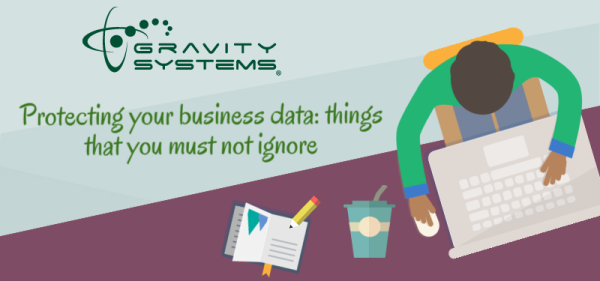
Protecting Your Business Data
If you are a large corporation, you probably have a well-established IT department who takes care of your data safety and security.You probably have invested a good amount of money to ensure that your business stays safe from data security threats. No one (except your IT department) has to bother about encryption, backup, email security, and other factors.
However, if you own a start-up or small to mid-sized business, you are ultimately responsible for the safety of your critical corporate data! Data loss could cost you severely. Many businesses that experience a data loss do not recover, or find that the costs of recovering the data far outweigh the cost of preventative measures. Here are some essential points for consideration that you may want to consider in order to keep your business data safe.
Encrypt your data
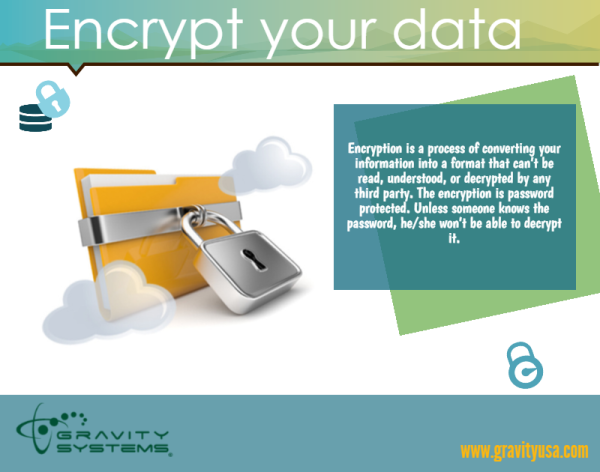
Your clients do business with you because they trust you. If they entrust you with sensitive data, it is up to you to earn that trust by protecting it. Make sure you encrypt all their confidential information such as tax forms, address details, financial sheets, business plans, etc. Similarly, it is important to encrypt your own data as well. Encryption is a process of converting your information into a format that can’t be read, understood, or decrypted by any third party. The encryption is password protected. Unless someone knows the password, he/she won’t be able to decrypt it. Encryption, in some form or another, should take place at least when data leaves your organization premises. For example, if you are an accountant focusing on tax returns, some encryption should be used when sending and receiving tax forms, working papers and finalized returns to and from clients.
Protect data in transit
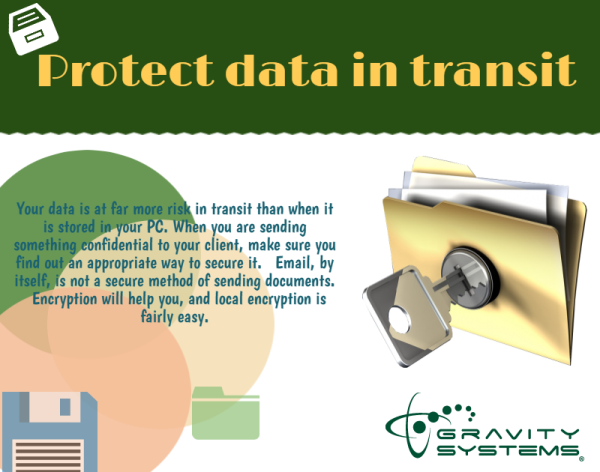
Your data is at far more risk in transit than when it is stored in your PC. When you are sending something confidential to your client, make sure you find out an appropriate way to secure it. Email, by itself, is not a secure method of sending documents. Encryption will help you, and local encryption is fairly easy. However, encrypting data in transit is challenging. This is because you and your client have to agree on a common encryption process. If your client already has an encryption policy, you may want to use their system. If not, then you both have to figure out a common way through which both the parties can protect their data during transit. One common method, following on the accounting example, would be to use a 3rd party file share site which uses common SSL security to encrypt uploads and downloads.
Secure your PCs using an anti-virus
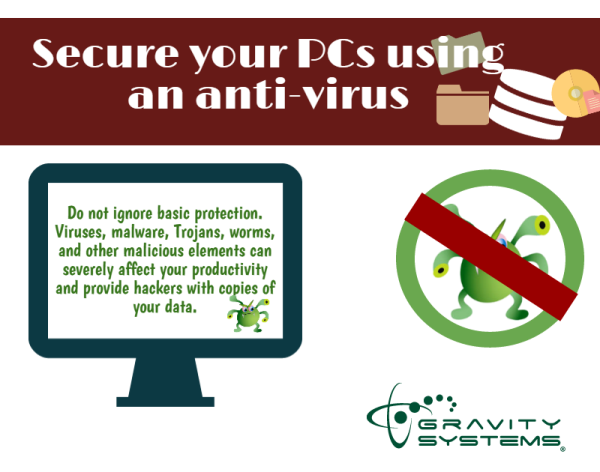
Do not ignore basic protection. Viruses, malware, Trojans, worms, and other malicious elements can severely affect your productivity and provide hackers with copies of your data. You may either lose access to the contents of confidential client files or to the files themselves. Invest in a quality anti-virus program, and make sure it is always up to date. Also, secure all your PCs and mobile devices. Remember that laptops and portable devices can be exposed to extra risk due to the unsecure networks they access.
Use an online backup service
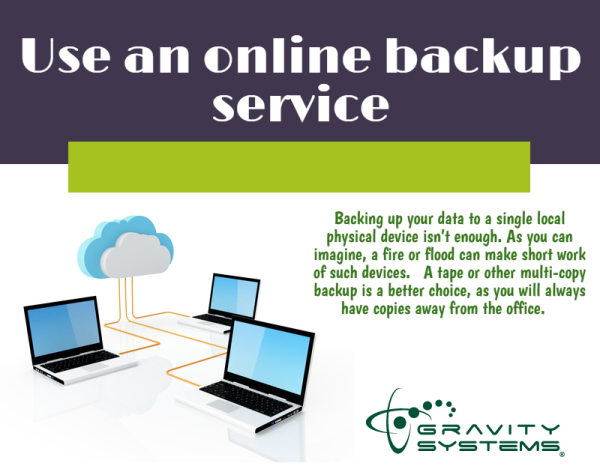
Backing up your data to a single local physical device isn’t enough. As you can imagine, a fire or flood can make short work of such devices. A tape or other multi-copy backup is a better choice, as you will always have copies away from the office. Many customers also use online backup either exclusively or in conjunction with premise-based backup. Online backup can be inexpensive for your core set of files, and may be a good choice for all of your data, depending on the size and type of data you are backing up. For some, the benefit of not needing to change a tape is tremendous!
We hope this blog helps you understand the basics of securing your data. If you are looking for professional help, get in touch with us www.GravityUSA.com



